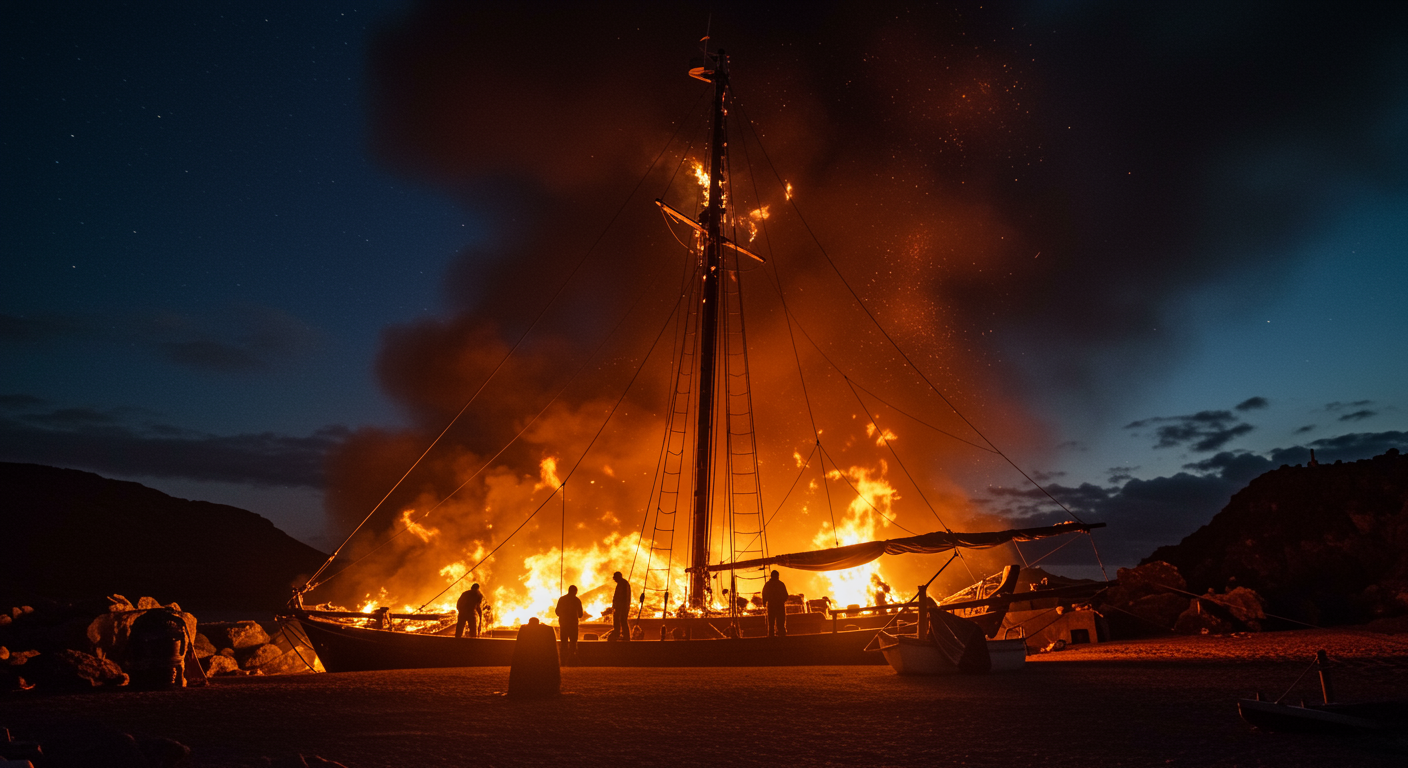The Storm Lady of Borandis

There is a saying along the Serpent Sea: “When the clouds over Borandis darken, even the gods hold their breath.” The Mid Marches learned long ago that thunder is the herald of kings there, for the Borandine crowns are not passed by blood alone but by storm. Each new ruler must climb the cliffs of Borandros and stand beneath the Tempest Arc, a natural bridge where lightning chooses the worthy. Those who live become Storm Lords; those who die become legends.
During the early years of the Second Age, the throne lay vacant for seven winters. King Damaris had been struck down by the very bolt that crowned him, and none dared climb the Arc since. The lands suffered for that silence — pirates from Falmuris raided unchecked, and Ultharos pressed the eastern borders. Trade fell still as ships refused the northern routes. The thunder above Borandis was the only sound left of its pride.
The Trial of Thalen Mar
Then came Thalen Mar, a shipwright’s son whose mother claimed descent from the first Storm Queen. He brought no army, only his father’s hammer and a broken mast of driftwood. The lords laughed when he demanded right of trial, but the high priest of the Tempest Arc allowed it, for the law of Borandis binds laughter tighter than steel: mock a challenger and the storm may choose him out of spite.
That night the sea heaved black beneath the cliffs. Witnesses said the wind tore the chapel banners to threads as Thalen Mar climbed. When lightning struck, it split the driftwood clean — yet the hammer in his hand burned blue. He raised it once, and the thunder answered not with death but with echo. Come morning, he stood crowned, hair white as seafoam, eyes reflecting storm light. Thus was the monarchy restored, and the land exhaled.
The Pact of the Four Harbors
King Thalen ruled by tide as much as throne. He rebuilt the shipyards at Borandros and bound neighboring Hyaumos,, and Falmuris into the Pact of the Three Harbors — a naval covenant sworn to keep the Serpent Sea free of raiders. Each harbor pledged a fleet and a tithe of salt-silver, and for the first time in a century, merchant sails outnumbered war banners on the horizon. The pact’s charter ends with a single line in Thalen’s own hand: “May we remember that calm is earned, not granted.”
The alliance held nearly fifty years. The bards call this the Calm Span — an age of peace so long that children forgot the sound of battle horns. Yet peace, like tide, recedes. When Thalen’s daughter Mira took the circlet, she faced a choice no lightning could answer whether to honor the pact’s equality or claim sole command of the sea.
The Betrayal at Brightwater
Brightwater Cove was meant to be a celebration — a renewal of vows among the Three Harbors. But ambition travels faster than wind. On the eve of the signing, Hyuaumosian envoys vanished; Falmurisian ships anchored farther out than custom allowed. At dusk, a signal-flare lit the sky red, and unnatural-fire rolled across the cove. Queen Mira's ship named the Tempest’s Grace sank before midnight, its mast burning like torch. Queen Mira survived, but her trust drowned with the fleet.
What followed was called the Sea-Sunder War. Brother fought brother across the coastal towns that traded hands as often as tides. Mira’s vengeance was precise and cold — she unleashed the storm within her blood. For seven nights thunder never ceased, and by dawn of the eighth, Brightwater lay in ruins, its bay turned to glass by lightning strike. The pact ended where it began: in fire and salt.
Legacy of the Storm Crown
Today the kings of Borandis still wear circlets forged from fragments of that glass, translucent and sharp. They say each shard hums when thunder nears, a reminder that power listens before it speaks. Sailors who round the northern coast salute the cliffs of the Tempest Arc, for fear that silence might summon storm again.
As bards of the Marches tell it, the moral of Borandis is not wrath but rhythm: “Rule with the patience of clouds, not the fury of lightning — for both burn, but only one brings rain.”

